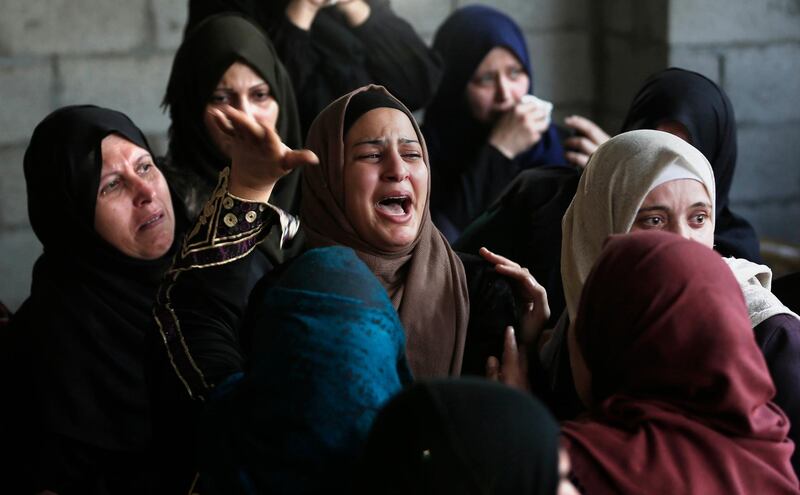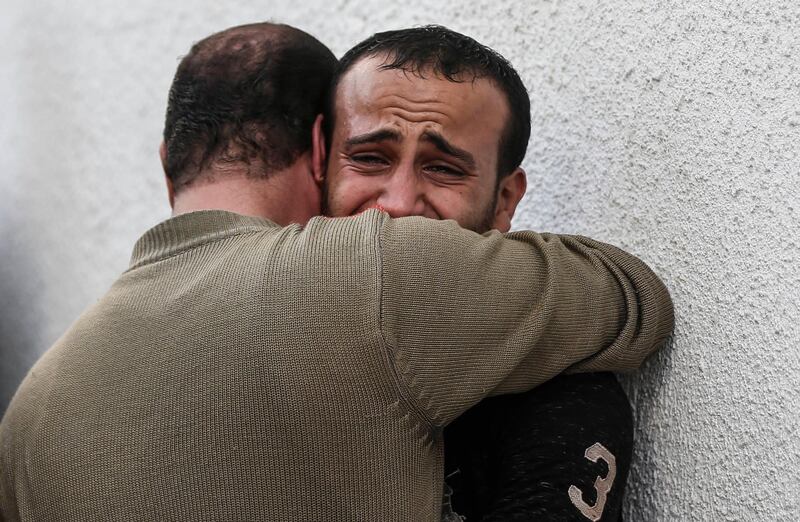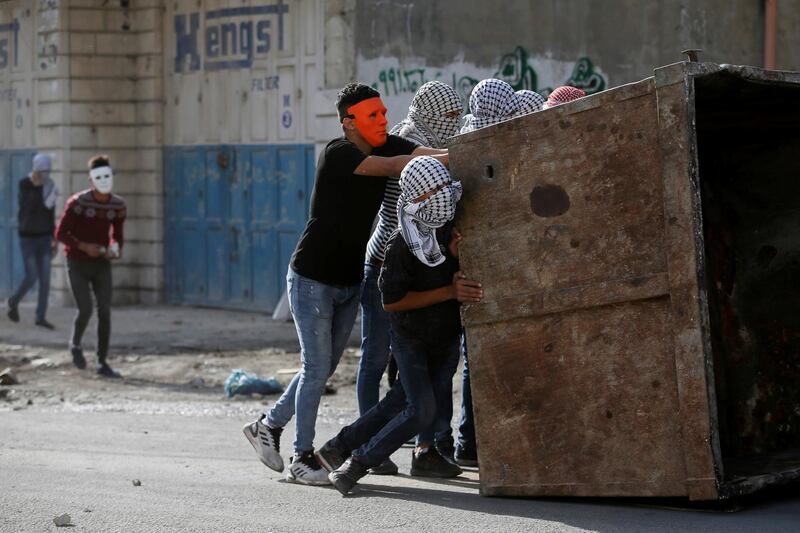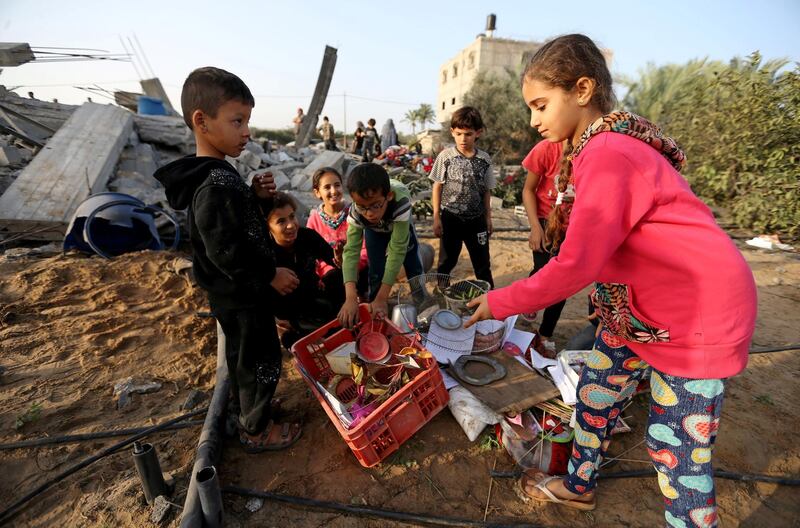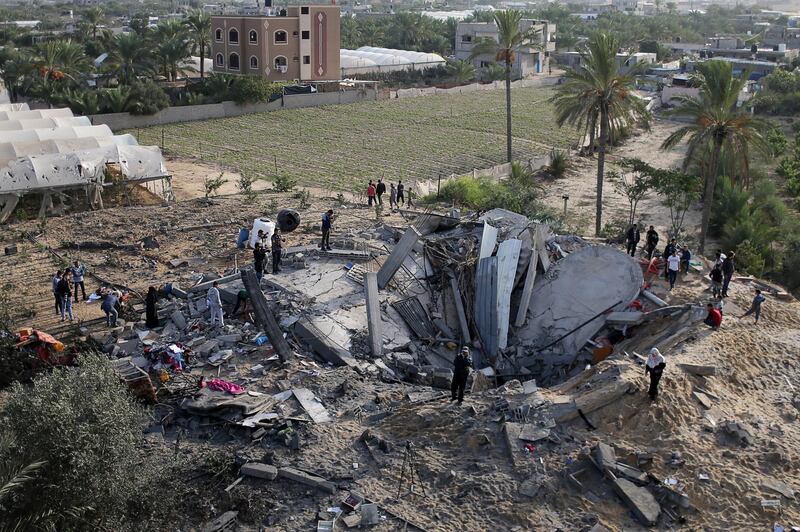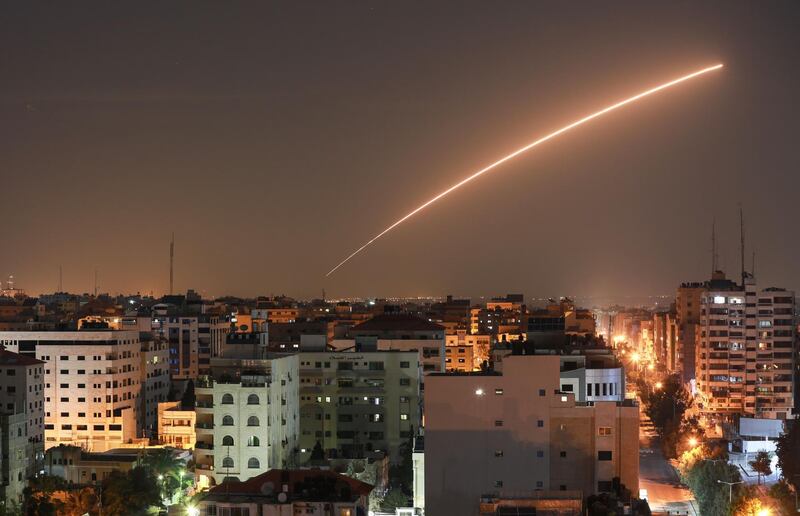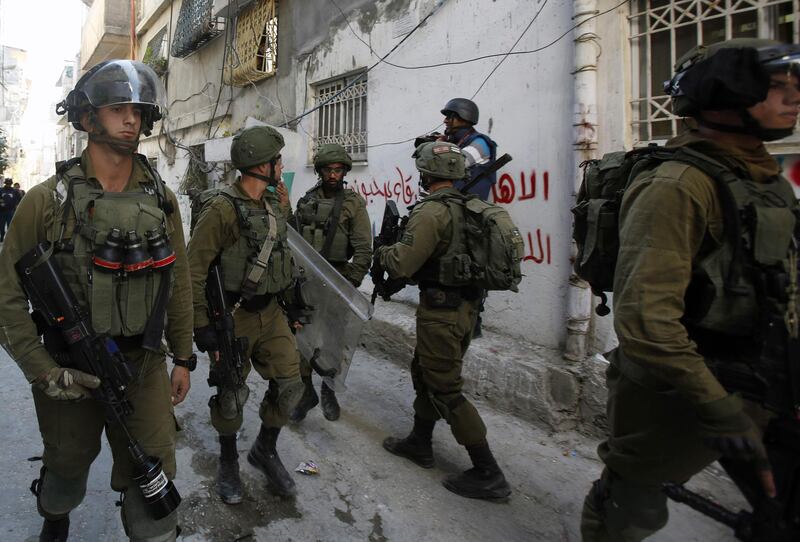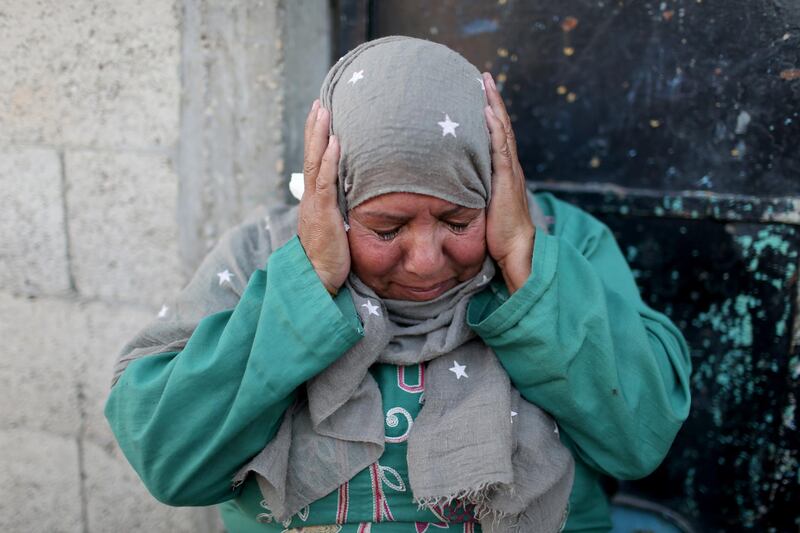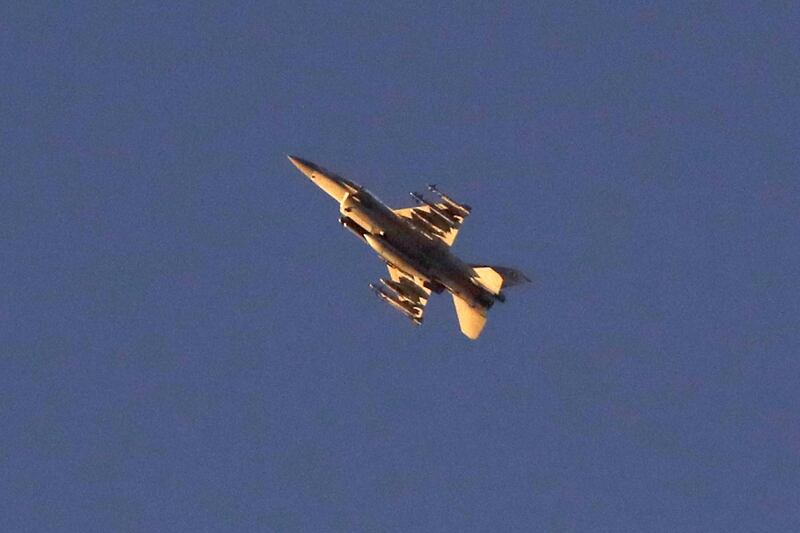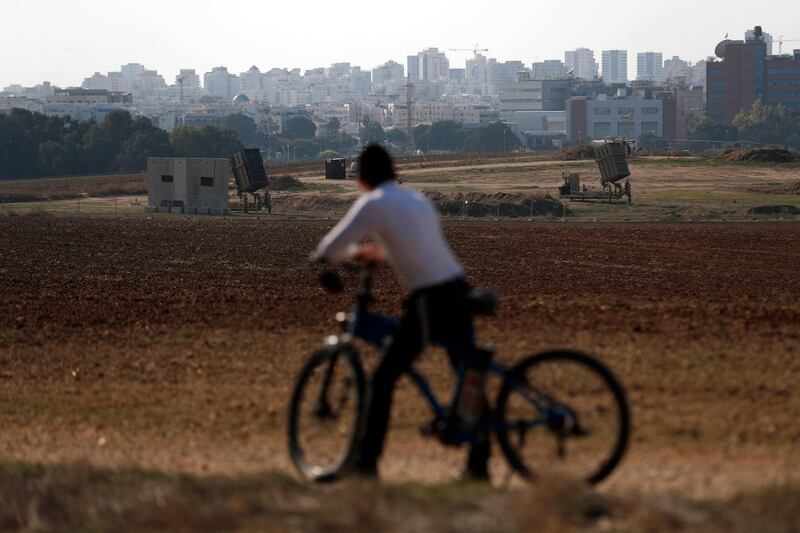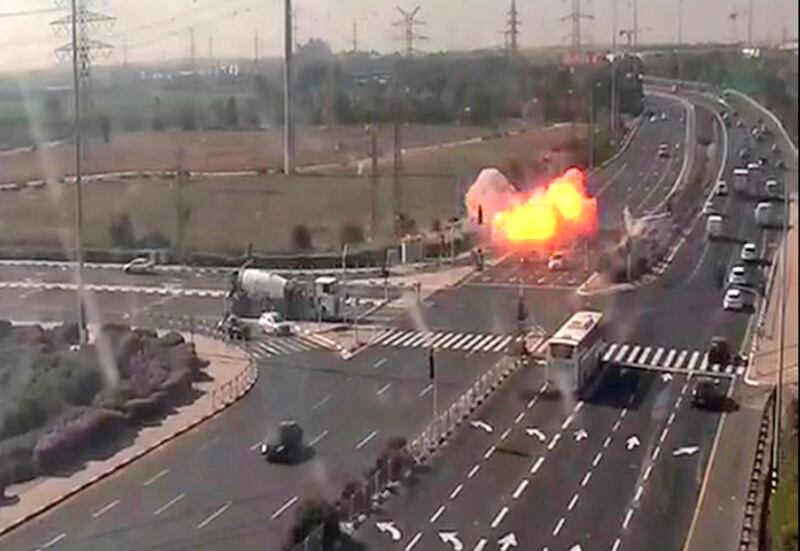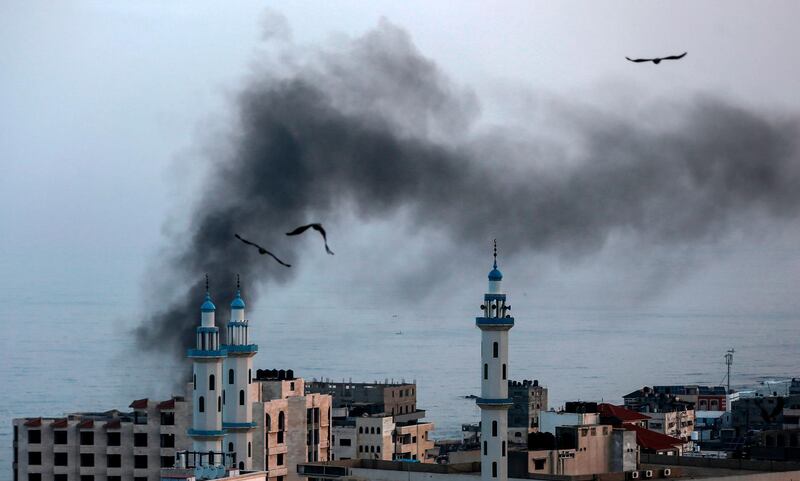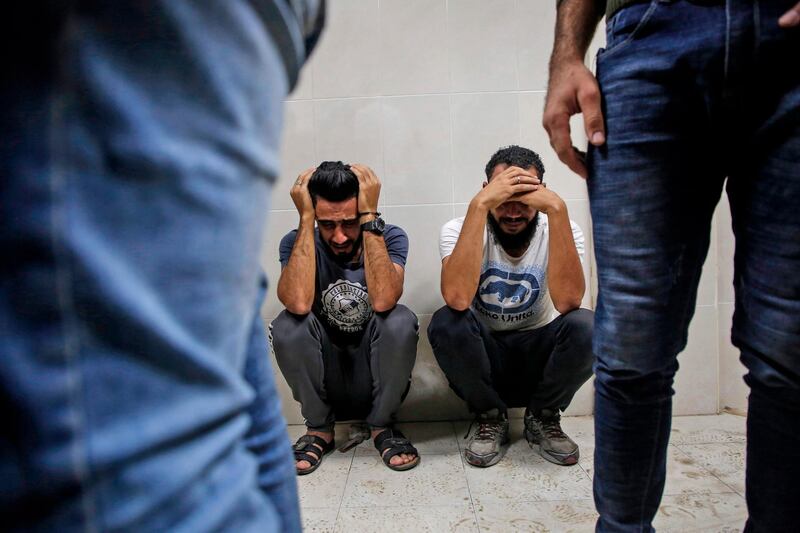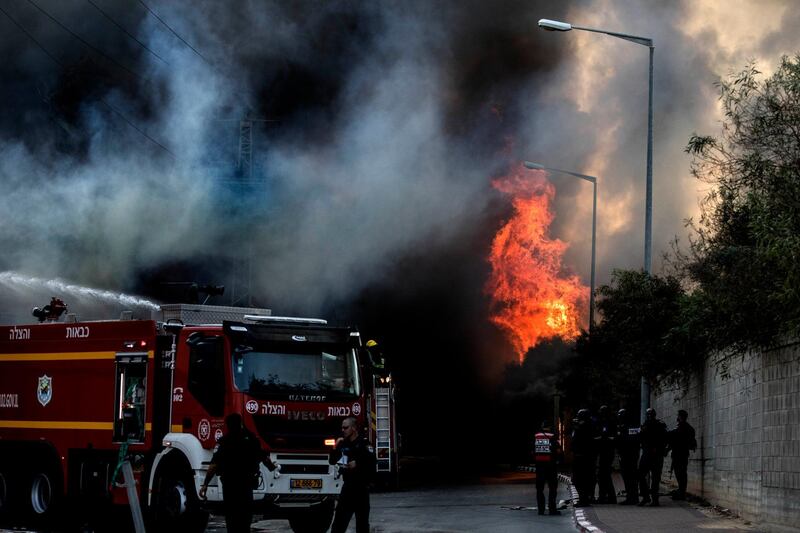An Israeli missile strike in the Gaza Strip killed six members of a Palestinian family on Thursday, all of them civilians, medical officials and residents said, bringing the death toll in the territory from a 48-hour surge in fighting to 32.
The Israeli military had no immediate comment on the pre-dawn incident in Deir Al Balah, which came as cross-border shelling exchanges continued despite a ceasefire offer by the Palestinian militant group Islamic Jihad.
Israel killed an Islamic Jihad field commander on Tuesday, sparking cross-border rocket salvoes by the militant group and further Israeli strikes.
Medics said 32 Palestinians have been killed, at least a third of them civilians.
Those killed in Thursday's attack on a home in Deir Al Balah included a woman and a child, medical officials said. Another 12 people were wounded, they said.
More rounds of rockets were fired at Israel, which responded with strikes on what it said were Islamic Jihad militant sites and rocket-launching areas in the Gaza Strip.
On Wednesday afternoon, it said it hit two militants preparing to fire anti-tank missiles.
Air-raid sirens wailed and fireballs exploded as air defence missiles intercepted rockets, sending Israelis rushing to bomb shelters.
In Gaza, residents surveyed damage and mourned the dead outside a mortuary and at funerals.
UN envoy Nickolay Mladenov arrived in Cairo on Wednesday afternoon to hold talks on halting the fighting.
The UN and Egypt have been instrumental in mediating earlier ceasefires between Israel and Gazan militants. But a source close to the discussions warned that risk of further escalation was high.
Israeli Prime Minister Benjamin Netanyahu said the militants must stop their stop rocket attacks or "absorb more and more blows".
He repeated his warning that "this could take time" and said Israel would respond to attacks "without mercy".
Seeking to keep the outburst under control, the Israeli military has restricted its operations to Islamic Jihad and nearly all of the casualties so far are members of the group.
In his first public comments on the fighting, militant leader Zeyad Al Nakhala said a truce could be agreed to immediately if Israel accepted the Iranian-backed faction's terms.
These included Israel ending targeted killing and its sometimes lethal response to weekly Gaza protests, and steps to ease its blockade on the coastal Palestinian enclave, Mr Al Nakhala, who is based in Beirut, told Al-Mayadeen TV.
He said he expected to hear Israel's response through Cairo within hours.
If a truce were not agreed on, he said, "The Jerusalem Brigades is able to manage the battle, and for a long time."
Israel signalled openness only to mutual restraint.
"Quiet will be answered with quiet," Israel's Army Radio quoted an unidentified Israeli government official as saying.
"Islamic Jihad wants a ceasefire, and it is thus trying to create a false impression of achievements."
Israel previously said it sought no escalation in Gaza. Unlike with past rounds of fighting, when Israel held Gaza's dominant Hamas faction responsible for any cross-border attacks, this time Hamas has been spared retaliation.
Hamas has voiced solidarity with Islamic Jihad but has not claimed responsibility for any of the rockets.
Before sunrise on Tuesday, another Israeli strike was launched against a senior Islamic Jihad commander based in Syria, but he escaped.
The strikes appeared to be a new surge in the open warfare between Israel and Iranian proxies in the region.
Iran has forces based in Syria, Israel's northern neighbour, and supports Hezbollah militants in Lebanon.
In Gaza, it supplies the militants with money, weapons and expertise.
Mr Netanyahu has also claimed that Iran is using Iraq and Yemen, where Tehran supports Houthi rebels at war with a Saudi-led coalition backing the government, to plan attacks against Israel.
Hamas, Gaza's rulers, also receives some support from Iran.
Israel often strikes Iranian interests in Syria but Tuesday's attack in Damascus appeared to be a rare assassination attempt of a Palestinian militant in the Syrian capital.
